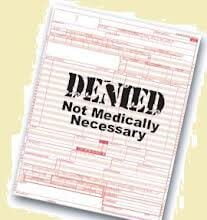 Medicare reform thus far has been focused on $79 office visits, co-payments for home health care, hospital readmissions, Miami infusion clinics, the price paid for scooters, $45 resting EKG’s, the Plan B deductible, etc. These are important areas to pursue — but they are not where the real money is.
Medicare reform thus far has been focused on $79 office visits, co-payments for home health care, hospital readmissions, Miami infusion clinics, the price paid for scooters, $45 resting EKG’s, the Plan B deductible, etc. These are important areas to pursue — but they are not where the real money is.
 Medicare reform thus far has been focused on $79 office visits, co-payments for home health care, hospital readmissions, Miami infusion clinics, the price paid for scooters, $45 resting EKG’s, the Plan B deductible, etc. These are important areas to pursue — but they are not where the real money is.
Medicare reform thus far has been focused on $79 office visits, co-payments for home health care, hospital readmissions, Miami infusion clinics, the price paid for scooters, $45 resting EKG’s, the Plan B deductible, etc. These are important areas to pursue — but they are not where the real money is.
While we are debating the “doc fix,” the drug companies, device companies and hospitals are backing up the truck and cleaning out the store!
Consider the following paid claims paid by Medicare in Indiana in 2011:
- 113 Heart Transplants…Average payment was $773,877 apiece.
- 96 Bone Marrow Transplants…Average payout was $509,637 apiece.
- 129 Liver Transplants…Average payout was $367,000 apiece.
- 2,200 Tracheostomies…Average payout was $376,103 apiece.
- 1,517 Open Heart Surgeries…Average payout was $185,000 apiece.
Altogether, the 12,000 largest claims in one state totaled $2.4 billion in Medicare spending. If the other states are consistent, then large claims like these ate up $120 billion of Medicare’s total spending of $545 billion. And when you factor in sepsis treatments, defibrillator-implants, and similar claims that cost “only” $75,000 each, almost two-thirds of Medicare spending — over $300 billion a year — is focused on just ten percent of beneficiaries.
This has nothing to do with doctor’s fees, which are normally just a fraction of the cost. A heart surgeon might receive $2,500 out of a $60,000 operation. An orthopedic surgeon may receive $3,000 out of a $40,000 operation. Neurosurgeons may receive $1,650 when the hospital’s “facility fee” is $60,000.
Drugs and devices often make up 40-50% of every large claim. Hospital and rehab centers take another 40%.
Many of the largest claims are quite simply padded. Kidney transplants can often be done with a 5 day inpatient stay, and yet the hospital might collect $250,000. No wonder hospitals stay quiet about it; no wonder they lobbied for the IPAB to do nothing about hospitals until 2020.
The 500+ DRG codes for hospital care include too many higher payments for “complexity.” (Pending changes to DRG’s might only make this worse.
For the last 25 years, health policy experts have waited for better drugs and faster surgeries to cut back what we spend on hospitals. And in fact, we have reduced hospital utilization and days of care. But hospitals have brought in more revenue on fewer patients, and we have let them do it through up coding. They use a whole portfolio of “revenue-enhancing” techniques:
- Falsified diagnoses.
- Routine use of modifiers that exempt claims from auditing.
- Claims for services and supplies not provided.
- Add-on codes and claim splitting.
Higher spending on hospital care has nothing to do with the health of seniors. It is solely due to the exploitation of graded fee schedules. Hospitals will scream at any reform…but most American hospitals are over-built and overstaffed — especially with computer analysts, billing clerks and technicians. In 1990, America had 1.7 million hospital beds, 3.5 million employees, and total budgets of $235 billion. By 2010 there were 940,000 beds, 4.6 million employees, and total budgets of $726 billion.
And all of this happened while better drugs and microsurgery made general hospitals less necessary.
Medicare money / shutterstock








